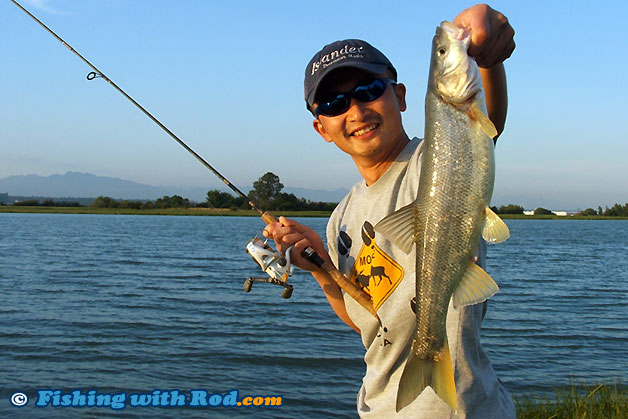Secret coarse fishing bait recipe
By Rodney Hsu, Fishing with Rod | Published in June 2001

As mentioned in my April 2010's article "Introduction to coarse fishing in BC", it is a form of fishing that has become quite popular around the world, particular in Europe, Asia and Australia. In BC, it is not recognized yet, but many anglers have already discovered this great sport by catching peamouth chubs, carps, northern squawfish and suckers. One of the crucial factors in coarse fishing is bait selection, which can often determine the result of your fishing. People often approach me when I am catching peamouth chubs consistently on a good day and ask what kind of bait I am using. Many times they are surprised or even shocked that coarse fish can be caught with relatively cheap and simple bait. Unlike salmon or trout fishing, coarse fishing uses scent to attract fish instead of the visual cue. In the silty Fraser River, tributaries or sloughs, it is important for the fish to be able to find your bait. Therefore, choosing bait with the right taste or smell should not be overlooked.
Corn
Canned corn pellets can be an excellent bait. It is used in Europe and Eastern Canada for carp fishing. Corns can stay on the hook easily, has a relatively small density, making it an ideal bait for float fishing. When fishing for carps in local sloughs or creeks, this is one bait that you must bring with you. When baiting the corns, be sure to leave the tip of your hook exposed. Corn skin can be hard sometimes, and strikes will be missed if the hook tip is embedded in the corn.
Dough
Dough is inexpensive, clean, easy to make and surprisingly one of the most effective bait for coarse fishing. It is widely used in Europe for bream, tench and perch; in Asia for numerous freshwater species and in Australia for mullet, bream and garfish. This is one type of bait I have been using for the last 5 years when fishing for peamouth chubs. The recipe is simple, a cup of plain white flour, slowly mixed with water until a ball of dough is formed. The amount of water added is personal preference, and requires some experimenting. Personally, I make my dough stickier when float fishing in slow water, while making it harder when fishing in high current water such as the main channel of the Fraser. Of course, simply using plain white dough is not always productive, you must be prepare to experiment by adding different scent to the dough. Some of the ingredients that you can try are curry powder, shrimp powder/oil, strawberry powder and peanut butter. Curry powder is quite effective but personally I tend to stay away from it due to the strong odour it leaves behind for many days after fishing. When baiting your dough, roll a small ball, similar to the size of the hook and stick it onto the hook. Again, be sure to expose the hook tip. Check the bait regularly, as it can fall off quite easily after several nibbles or dissolve in water after long period of time.
Worm
A can of worms is an universal bait, you will always get a bite if there is a fish in the water. The reason being it's alive, and it gives off an unique scent that is very attractive to fish. When fishing for peamouth chubs however, it is almost a waste using worms. Worms are usually used for larger fish such as the sturgeon, coho, dolly varden and northern squawfish. The dew worms can be expensive from the tackle shops or gas station, and garden worms are usually too thin. It is a good bait nevertheless, and can often produce some surprisingly big catches.
There you have it, some of the baits that are readily available for you to use in the next fishing trip. Instead of spending lots of money on artificial bait products such as Powerbait, a few dollars can also produce a good catch. The key is to experiment with different baits, until you find the optimal recipe. See you all on the water next time!

